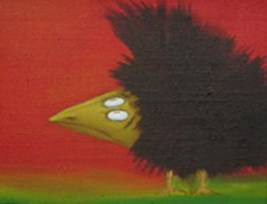She limped forward a step. His hands tightened, steadying her.
Lex moved her face in close, breathed deep. A cedar-closet scent lingered on his suit jacket. He bent his head, and then his cheek touched hers.
Slightly prickly from a not-so-close shave, but smoother than she expected. His skin felt oilier than hers. How weird. Warm. And oh, his soap-fir-musk filling her pores.
They swayed like that, barely moving, for minutes, hours, days. She leaned back into the strength of his hands at her waist. He cradled her closer to him.
A whisper of breath at her cheek. Skin sliding against skin. Soft lips on the corner of her mouth.
Her heart fluttered.
She turned her head into his kiss.
GLOSSARY OF ASIAN WORDS (CAMY STYLE)
Ahi – (ah-hee) tuna (Japanese), pink-red in color when it’s raw, yummy and delish. A favorite type of roll in sushi bars.
“Aaaaiiiiieeeee!” – (eye-Eeeeee) a modified form of aiyah (below) with added emotional emphasis, such as when you spot a mouse in your sock drawer.
Aiyaaaah – in actuality, aiyah (eye-yuh) but with the “uh” sound at the end drawn out, usually in dismay. Loosely translated from the Chinese, “Aw, man!”
Baka – (bah-kuh) “stupid” (Japanese). Very useful slang word, especially around annoying siblings or best friends.
Char siu and char siu baos – (Chah-shoo) Char siu is reddish-colored marinated barbequed pork. Baos (bow as in b + ow!, the expletive when someone hits their thumb with a hammer) are steamed bread-like Chinese dumplings that look like little white round pillows, ranging in size, with char siu hidden inside. Very delish.
Chou dofu – (chew doh-foo) Chinese fermented tofu, also called stinky tofu. Smells like a sewer. Not something to eat on an airplane.
Domo arigato – (doh-moh ah-ree-gah-toe) “thank you” (Japanese), made famous in the song “Domo Arigato Mister Roboto” by Styx and often heard in TV commercials with strange people dancing to it.
Geisha – (gay-shah) a professional female Japanese artist and entertainer. NOT a prostitute. Geishas are like ballet dancers or composers or any other professional in the arts and entertainment business.
Goma seeds – (go-mah) black sesame seeds often used in Japanese cooking.
“Hajimemashte. Boku wa Akaoki Toya. Anata no obaasan – ” -“Hello, nice to meet you. My name is Toya (first name) Akaoki.
Your grandmother – ” (Japanese)
“Ichi, ni, san, shi, go! Hitotsu, futatsu, mitsu, yotsu!” – “One, two, three, four, five (counting numbers)! One, two, three, four (counting objects)!” (Japanese)
Inarizushi – (ee-nah-ree-zoo-shee) a type of sushi in which vinegar-and sugar-flavored rice is stuffed into pouches made from fried bean curd. They can look a little bit like mini-footballs.
Koi pond – (coy) Koi is Japanese for the fancy carp fish colored white, gold, red, orange, black, or a combination of all colors.
They don’t do much besides look pretty and require a ton of work to maintain.
Makizushi – (mah-key-zoo-shee) a type of sushi that’s made by rolling pickled vegetables, shrimp powder, sometimes canned tuna, and various other Japanese things I can’t pronounce in vinegar-and sugar-flavored rice, with seaweed around the log. The log is then cut into bite-sized rounds. Makizushi can be very fancy if made in a restaurant, but this is the country-style makizushi I’m used to.
Maneki – (muh-neck-ee) a Japanese “welcoming cat,” typically a small statue at the entrances of stores to welcome customers inside.
Mochiko chicken – (moh-chee-koh) marinated and deep-fried chicken. The marinade usually involves mochiko flour, or flour made from sweet rice, which is different from regular rice. My mom’s recipe is fabulous.
Monku-monku-monku – (moan-coup) “complain, complain, complain” (Japanese American slang), often accompanied with a raised hand opening and closing like the other person’s unabated mouth.
“Moshi-moshiiii! Otearai e itte mo iidesuka?” – “Hello (answering the telephone)! Where is the restroom?” (Japanese)
Musubi – (moo-sue-bee) a simple triangular “ball” made of white rice with a strip of seaweed wrapped around it. Often eaten by Japanese Americans with fried chicken, which isn’t traditional Japanese but very tasty anyway.
“Ni hao ma?” – “How are you?” (Mandarin Chinese)
Noh – (no) ancient Japanese musical drama, often recognized for the ghost-white painted masks used. There are also some red demon masks scary enough to give you nightmares.
“Okaasan – ” – “My mother – ” (Japanese)
“Otearai” – “bathroom” or “restroom” (Japanese)
Sashimi – (sah-shee-mee) a general Japanese term for sliced fish eaten raw, but often referring to tuna, since that’s the easiest variety of raw fresh fish available at the supermarkets. There are different grades of tuna sashimi, and that stuff can get pretty expensive. Sashimi is usually eaten on special occasions and at parties.
Shrimp tempura – (ten-poo-rah) shrimp dipped in an egg batter and deep fried. Some tempura batters are similar to British beer batter for fish. Shrimp and deep fried – what’s not to like?
Sukiyaki – (sue-key-yah-key) another name for the original Japanese song Ue o muite arukô by Kyu Sakamoto, rereleased in English by A Taste of Honey. Also, sukiyaki is a yummy Japanese winter dish of meat, vegetables, and noodles simmered in rice wine, soy sauce, and sugar. My grandma makes a mean chicken hekka, which is like sukiyaki except with broth added.
Takuwan and tsukemono – pickled vegetables. Tsukemono (sue-kay- moh-no) is the general term for pickled vegetables, while takuwan (tah-coup-won) is specifically pickled radish. However, for our family, tsukemono usually meant Grandma’s pickled cabbage and cucumbers.
Ume – (oo-may) a Japanese pickled plum. It is an unnatural red-pink color and can sometimes be sour enough to make you pucker for an hour after eating it.
Yakudoshi – (yah-coup-doh-shee) Japanese birthday milestones, with different ages for men and women. They are considered “calamity years” which Japanese celebrate with huge parties in order to ward off the bad spirits or bad luck. For contemporary Japanese Americans, it just means we’re getting old.
Yakuza – (yah-coup-zah) Japanese mafia. Not a good group of guys to anger.
Camy Tang

